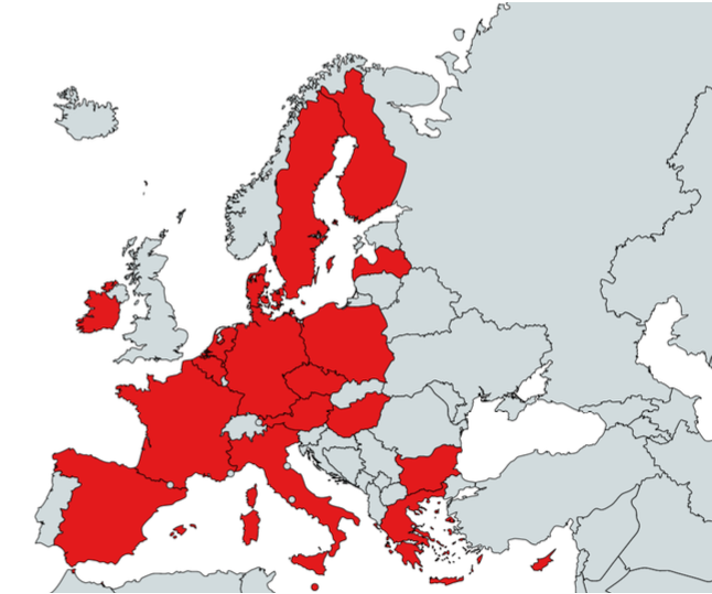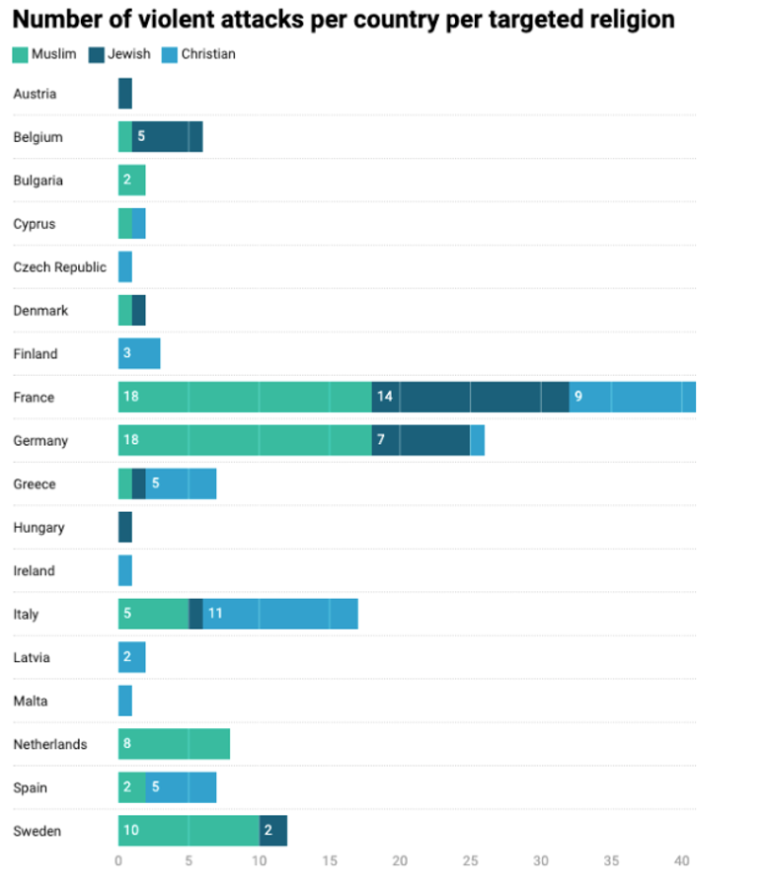SHIELD (solutions to enhance interfaith protection of places of worship from terrorist danger) is a project funded by the European Commission and, in particular, by the European Union’s Internal Security Fund – Police. The project, coordinated by the SYNYO GmbH, started in January 2022 and will run for two years.
SHIELD will conceptualise solutions to protect places of worship and, more generally, religious buildings from terrorist threats. In order to achieve this goal, the project connects EU public and private actors, including representatives of the Christian, Jewish and Muslim communities, security practitioners, LEAs, municipalities, experts in risk detection and technological partners. SHIELD will first identify, for each religion, critical points in places of worship as well as circumstances and rituals that are more subject to the risk of terrorist attacks as well as the precise types of terrorist attacks that would be more likely to be perpetrated.
One of the first outputs of SHIELD an analysis of the state of the art of terrorist attacks on places of worship from the 21st century until today in order to establish a comprehensive understanding of the phenomenon. In addition, the concept of “terrorist attack” was deeply discussed. Countries and organisations often have their own definition of terrorism, which do not necessarily coincide. Therefore, several definitions have been investigated to gain a more accurate perspective, as well as other terms such as fundamentalism, violent extremism, religious extremism or radicalisation. Eventually, the more inclusive term “violent attack” was used in order to take into consideration the diversity and pattern of attacks against the various religious communities in Europe.
The problem of violent attacks against places of worship is a common issue in almost all of the European Union. The map below highlights in red all the countries where at least one violent attack against a religious building has taken place.

From the data collected during the state-of-the-art analysis, the SHIELD project also analysed the distribution of violent attacks by targeted country and religion, as highlighted in the graph below.

This graph does not distinguish between attacks on buildings and attacks on people; however, it allows for various hypotheses and considerations:
- Anti-Semitism and attacks against the Jewish community are recurrent problems in several states in Europe, especially in France, Germany, Belgium and Sweden. At the same time, some of the violent attacks against Jewish communities are carried out by extreme right-wing extremists.
- Attacks against Muslim places of worship (rather than against Muslims themselves, since there have not been many victims of Muslim worship in Europe) are more prevalent in France, Germany and Sweden. Italy and Holland represent peculiar cases: attacks on Muslim communities have been significant despite the low percentage of Muslims in the territory.
- Finally, it can be seen that attacks on Christian places of worship are more or less transversal throughout the European Union and have the most disparate motivations, from anarchism to jihadist Islam, making them a target opposed by several actors.
The state of the art then, dwells on those religions that are, in general, most targeted. Some considerations on the possible motives, the type and course of attack and the weapons mostly used are presented.
Subsequently, a series of attacks considered as significant or at least as “archetypes” were analysed, so as to account for different attack dynamics and to be able to study the context, the mode of action, the structure of the buildings, the vulnerabilities exploited by the attackers and the weaknesses in the security measures.
The final part of the report illustrates some considerations on the security of places of worship, based on about twenty interviews conducted with representatives of the various religious communities in Europe. Thanks to these interviews, it was possible to understand the level of awareness and preparedness of the different religious communities in Europe.
The analyses proposed in this report will serve, accompanied by a future vulnerability assessment, to propose adequate security measures adapted to the possible scenarios according to the type of religious building and its location. Therefore, the final objective of SHIELD is to propose guidelines and solutions to secure places of worship in Europe.

